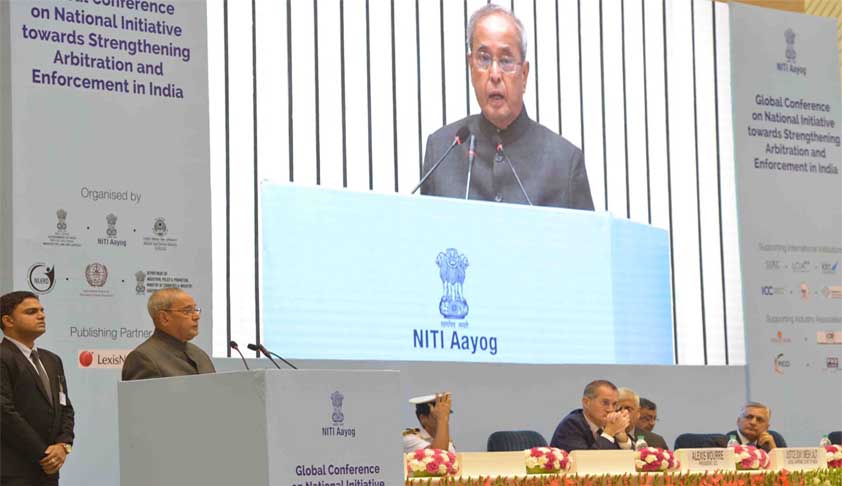The President Pranab Mukherjee Today stated that while India has the basic legal and physical infrastructure to support international arbitrations, we need basic institutional reforms to strengthen our arbitration framework. He was inaugurating the Global Conference on ‘National Initiative towards strengthening Arbitration and Enforcement in India’ in New Delhi today. He added that...

